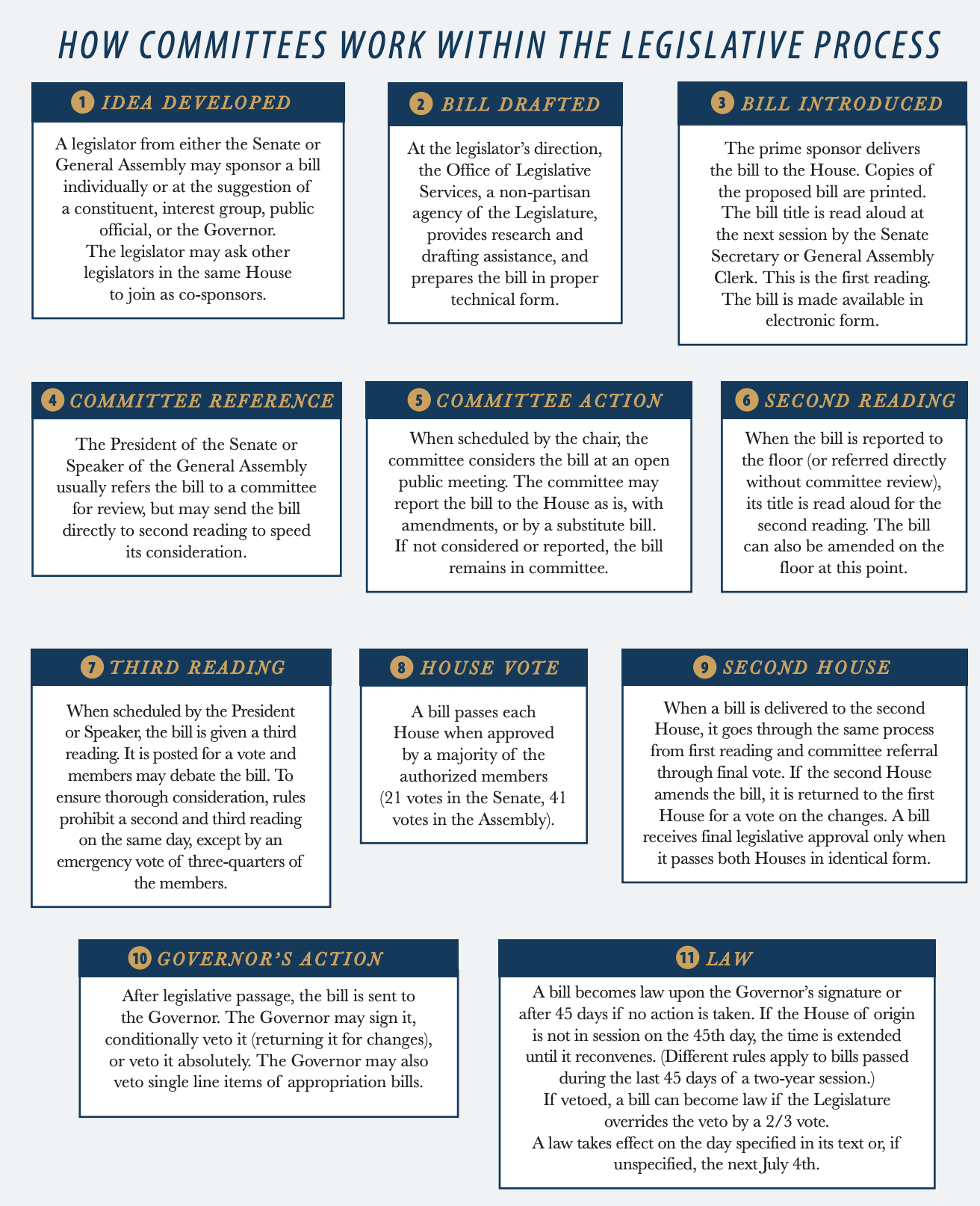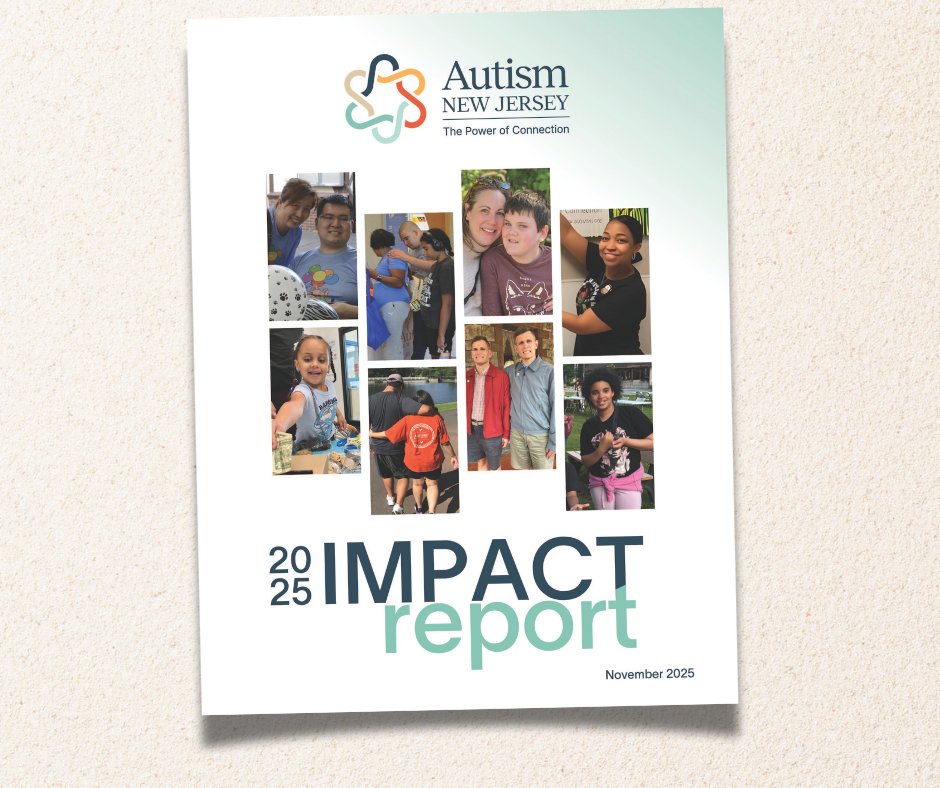Purpose of Government
To organize society in a way that maintains order and security, protects individual rights, provides essential services, ensures justice, and promotes the general welfare of its citizens.
Branches of Government
Executive
This branch enforces laws
-
- The Governor is the head of the executive branch
- The Governor is responsible for signing legislation into law
- There are 18 departments and 56 agencies that serve different functions including providing services and resources to residents
Legislative
This branch creates laws and consists of two houses: the Senate and General Assembly
- Members of the Legislature are chosen from 40 electoral districts, with each district electing one Senator and two Assemblymembers
- Each house passes legislation
Senate
- Consists of 40 members
- Senate President is the head of the Senate and is chosen from and by members of the Senate
- Members of certain boards and commissions are appointed by the Governor with the advice and consent of the Senate
General Assembly
- Consists of 80 members
- Assembly Speaker is the head of the General Assembly and is chosen from and by members of the General Assembly
Involvement of Political Parties
- The political party with the most members in each house is considered the majority party
- The political party with the fewest members in each house is considered the minority party
Judicial
This branch interprets laws
-
- Consists of the New Jersey Supreme Court and numerous lower courts
- The Supreme Court consists of a Chief Justice and six Associate Justices who are all appointed by the Governor with the advice and consent of the Senate
Lifespan of a Bill
The Path of Legislation

Legislature Committees
The number and types of committees change based on the discretion of the Senate President and Assembly Speaker
- 17 Senate Committees
- 26 Assembly Committees
- 7 Joint Senate and Assembly Committees
- 13 Other Committees
New Jersey Legislature Website
State Regulations
- State regulations, called the New Jersey Administrative Code, are rules adopted by state agencies in the Executive branch of government
- Regulations are primarily responsible for providing details and outlining the implementation of state and federal statutes
Autism State Regulations Website
State Budget
- New Jersey’s budget is set on a fiscal year basis which starts on July 1st and lasts until June 30th of the following year
- Budget timeline
- Governor proposes budget to Legislature after working with all the departments and agencies on their current and upcoming priorities
- 2 legislative committees (Senate Budget and Appropriations and Assembly Budget) hold hearings with State departments and the public on the budget
- Both houses of the Legislature pass the budget after making changes they see fit
- The Governor must sign the budget into law before July 1st each year










